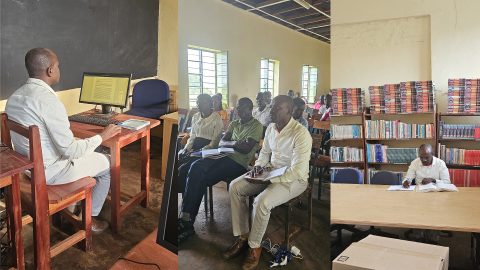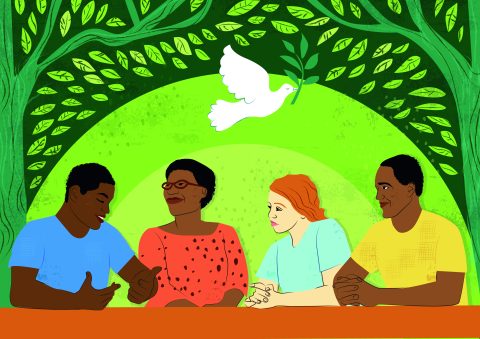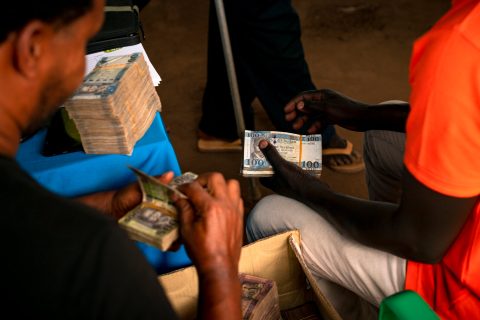South Sudan
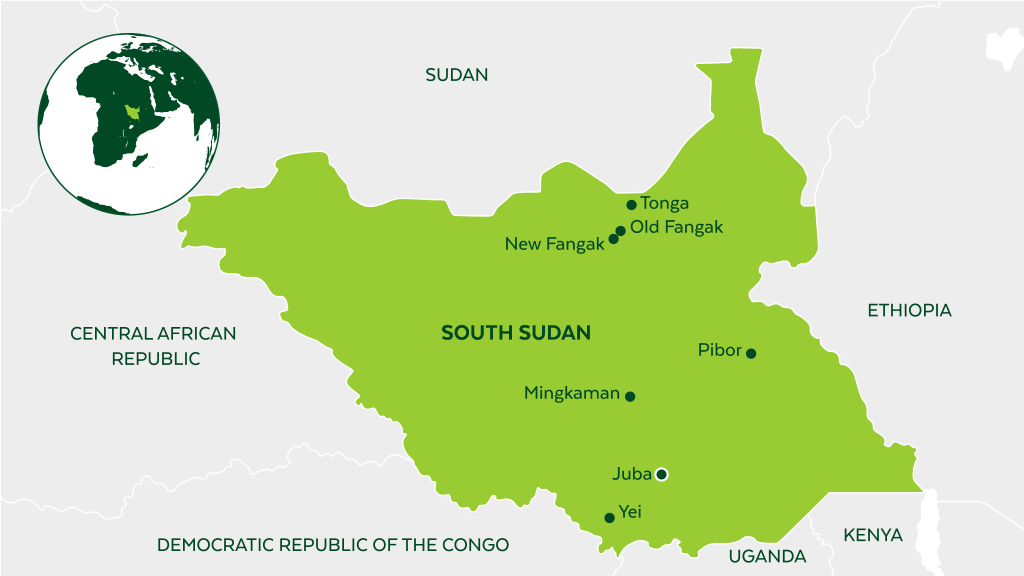
Conflict, food shortages and a collapsing economy have forced millions to leave their homes in South Sudan since it gained its independence in 2011. A peace deal signed in 2018 has increased stability in the country.
Finn Church Aid (FCA) supports youth, women and religious and traditional leaders in mediating conflicts, building peace and eradicating hate speech. FCA also works with children, youth and their families to improve access to quality education, increase school attendance particularly among girls and secure livelihood opportunities that create businesses and help parents keep their children in school.
FCA implements projects and programmes in the states Jonglei, Upper Nile, Central Equatoria and Lakes.
Population: 10.2 million
Capital: Juba
Currency: South Sudanese pound
Languages: English (official), Arabic (includes Juba and Sudanese variants), regional languages include Dinka, Nuer, Bari, Zande, Shilluk
Religions: animist, Christian, Muslim
FCA in South-Sudan: since 2010
Our results
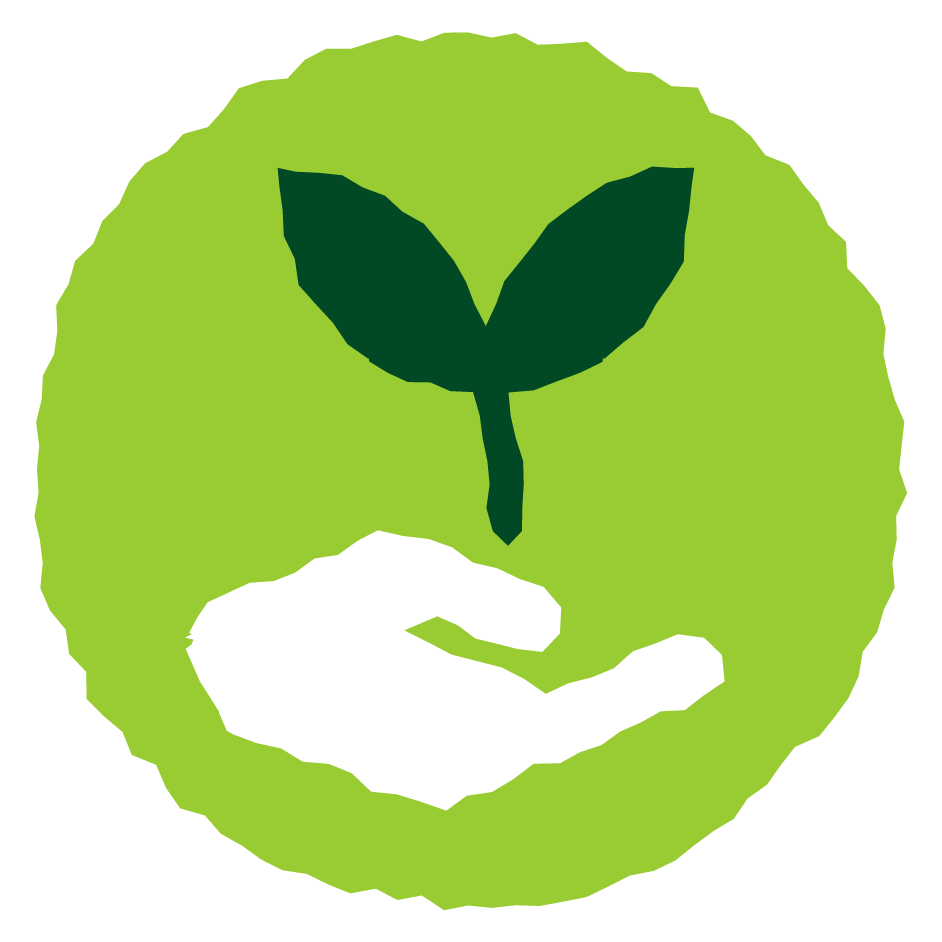
6,347
parents supported with farming tools, seeds and fishing gear, as well as training in farming and fishing.
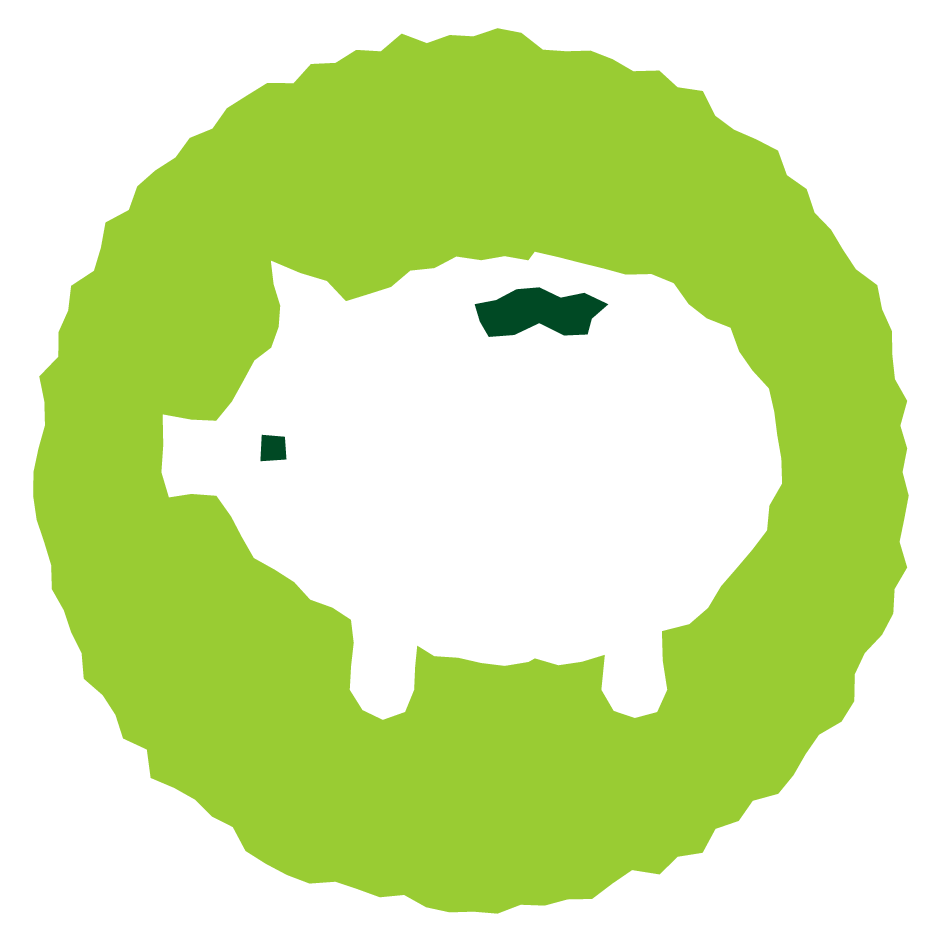
2,825
families received cash assistance to improve their food provision and ability to meet other needs.
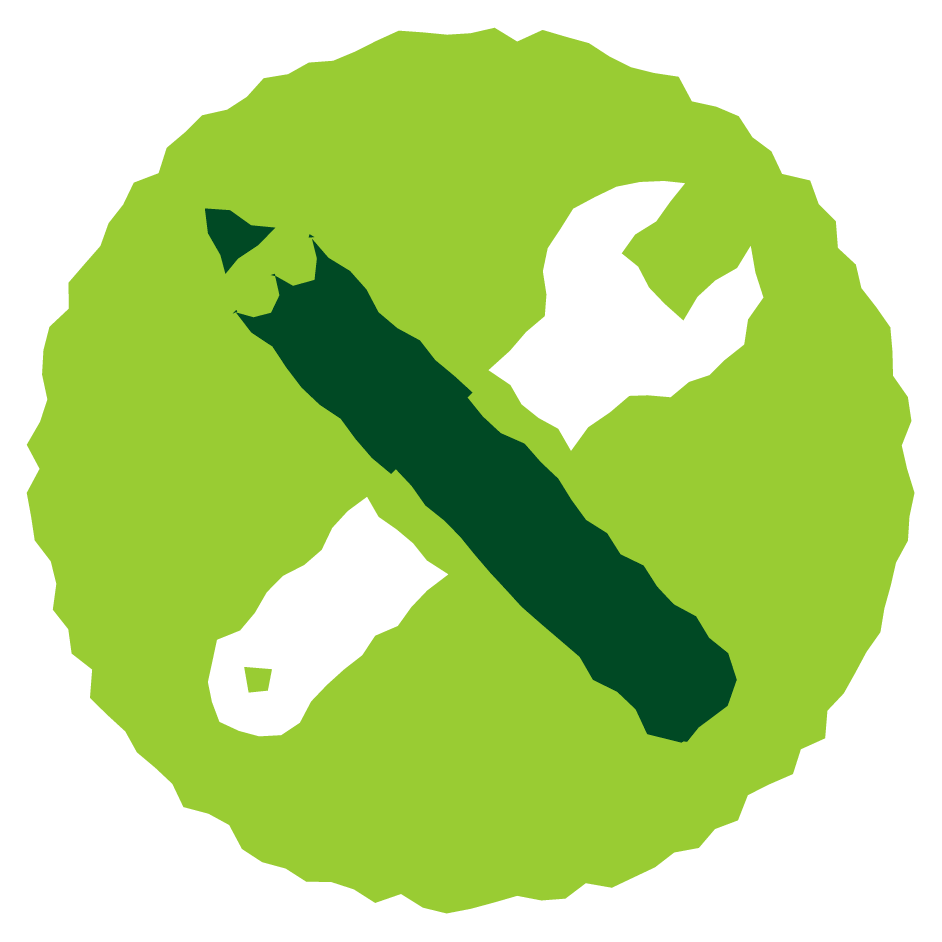
414
young people completed a post-vocational internship in the private sector.
Education and livelihoods increase stability
Conflict, as well as extreme floods and drought, have caused displacement, food scarcity and low school attendance in South Sudan. Without education, it is also difficult to find livelihood opportunities. A peace deal signed in September 2018 has increased stability in the country
The last cycle of violence began when fighting erupted in July 2016, forcing closer to four million people to leave their homes and 2.2 million of them fleeing to neighbouring countries. Many still live as internally displaced people in FCA’s areas of operation.
In 2019, our work with education reached 40,797 children and youth in various locations. We supported pupils with learning materials and learning spaces. In South Sudan, it is much harder for girls to access school than it is for boys, but in 2019 almost 50 per cent of the learners in schools supported by FCA were girls. FCA also constructs both temporary and permanent school structures.
Sending children to school is promoted by supporting families with cash transfers, as well as through training in farming and fishing. In conjunction with these sessions, the parents received livelihoods support, like seeds, water pumps and fishing equipment.
We supported a total of 2,028 farmers in the country, and this has a significant effect on local food production. In addition, 2,325 families in Fangak and Yei received cash transfers that help single mothers, in particular, to support their children’s education. Parents can provide children with food and establish businesses, such as food stalls or restaurants that generate an income for the family.
Together with the Ministry of Education in South Sudan, we developed the country’s first vocational education curricula, which was adopted in 2019. The programmes that we support trained 490 youth in hairdressing, tailoring or construction, among other trades.
Successful peace processes between communities
FCA’s peace work in South Sudan focuses on the local and national levels. The country programme has facilitated intra- and inter-communal conflict resolution processes, including consultations and dialogues. FCA engages traditional and religious leaders as well as youth and women in local conflict resolution and peacebuilding mechanisms and exposes the benefits of peaceful solutions to conflicts by creating safe and neutral spaces for interaction between conflict parties.
In 2016, 40 tribe leaders – a historical amount of key stakeholders – signed two peace agreements in 2016, preventing further outbreaks of violence within Boma state and between Boma state and Jonglei state. Over 90 per cent of the participants said they were happy with the peace process.
Women and youth groups continue to work for peace in the area through dialogues and events, like sports tournaments. Dialogues led by women in Gumuruk, Pibor and Lequangue reduced the number of violent incidents in these areas in 2019. In previous years, approximately five incidents were reported in Pibor every week, but the average is one per week these days.
FCA also works with South Sudanese refugees in Uganda.
